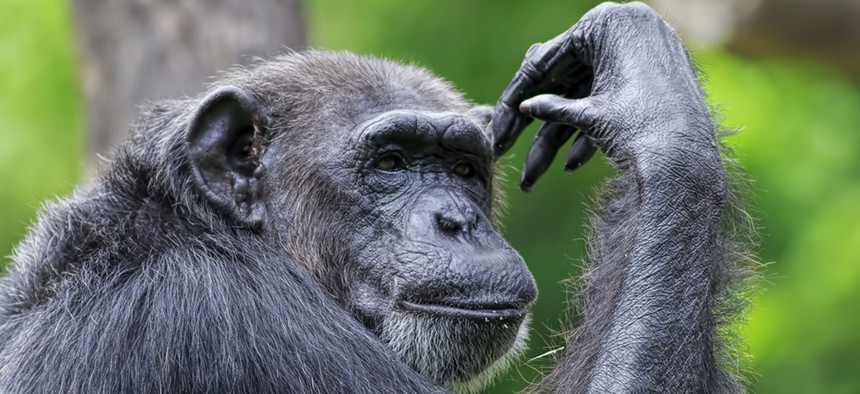
Kjersti Joergensen/Shutterstock.com
NIH is Retiring All Its Research Chimpanzees
Researchers will continue to use genetically modified rats and other primates instead.
The last 50 chimpanzees held for medical testing by the US government will soon be allowed to retire in sanctuaries, the National Institutes of Health (NIH) said on Wednesday.
“It is clear that we’ve reached a tipping point,” said Francis Collins, director of the NIH, in the statement. That marks the end of the government’s use of the primates for medical research, and completes a multi-year process that earlier retired around 300 chimpanzees in 2013.
“It seems inescapable that after two-and-a-half years when there has not been a single request for access to these 50 chimpanzees […] we have moved on from the time when research on chimpanzees was considered essential,” Collins told Nature. The primates will now berelocated to Louisiana’s Chimp Haven, joining other retirees.
The NIH kicked off the process of phasing out chimpanzees from medical research in 2010, and the US Institute of Medicine agreed a year later that their use was was not necessary. This year, the animals were marked as endangered, which forced researchers to apply for an extra license to obtain permission to perform tests on the animals; no such permission has been sought for testing.
Those developing a vaccine to treat wild chimps for Ebola—which haswiped out large numbers of the species—complained that the movewould create barriers to their work. Chimpanzees in non-government facilities are still available for such research.
And the NIH’s decision does not mean other primates won’t be used for research in the future. “Research with other non-human primates will continue to be valued, supported, and conducted,” the NIH statement said.
(Image via Kjersti Joergensen/Shutterstock.com)






